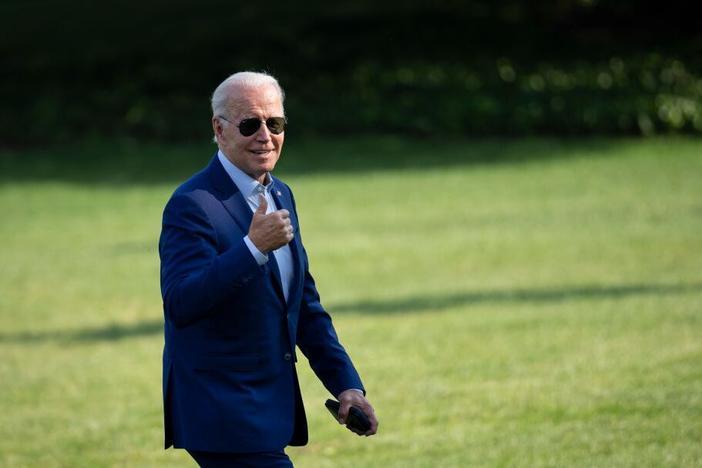Section Branding
Header Content
Legal experts say Trump's conviction is unlikely to lead to a prison sentence
Primary Content
Former President Donald Trump is now a convicted felon, but legal experts have told NPR that it's unlikely he will face incarceration.
A New York jury on Thursday found the former president guilty of 34 felony counts in his unprecedented hush money case. Trump called the trial "disgraceful" and his legal team has signaled it will appeal.
The charges — for falsifying business records to conceal another crime — carry a maximum sentence of four years in prison, but Trump could receive much less serious punishment, like probation.
Lauren-Brooke Eisen, a senior director at the nonprofit Brennan Center for Justice, told NPR's Ximena Bustillo before the trial's conclusion that it's "very unlikely for someone who has never been convicted of a crime to go to prison ... for their first offense, which is nonviolent."
Georgetown University law professor and attorney Paul Butler, a former federal prosecutor and expert on criminal law, also told NPR, on Thursday evening, that Trump is unlikely to get prison time.
Some former prosecutors, however, told Politico that incarceration is perhaps more likely than conventional wisdom might suggest.
New York Judge Juan Merchan scheduled sentencing for July 11 — which happens to be just days before the Republican National Convention.
Butler said Merchan may also pause Trump's sentence until the appeals process is exhausted.
The sentencing would also have a direct impact on Trump's voting rights. (There's no prohibition on him running for president as a convicted felon.)
Voting rights for people with felony convictions differ from state to state. The former president is registered to vote in Florida.
"Florida has interpreted its statute to say that a felony conviction in another state makes a person ineligible to vote in Florida," Justin Levitt, an election law expert at Loyola Marymount University and a former Justice Department official, told NPR earlier this year. "[But] only if the conviction would make the person ineligible to vote wherever they were convicted."
And New York restricts the voting rights of people convicted of felonies, but only while they are incarcerated.
So if Trump doesn't serve prison time for the New York conviction, he's likely to be able cast a ballot this fall.
Stephen Fowler and Clayton Kincade contributed to this story.
Bottom Content




